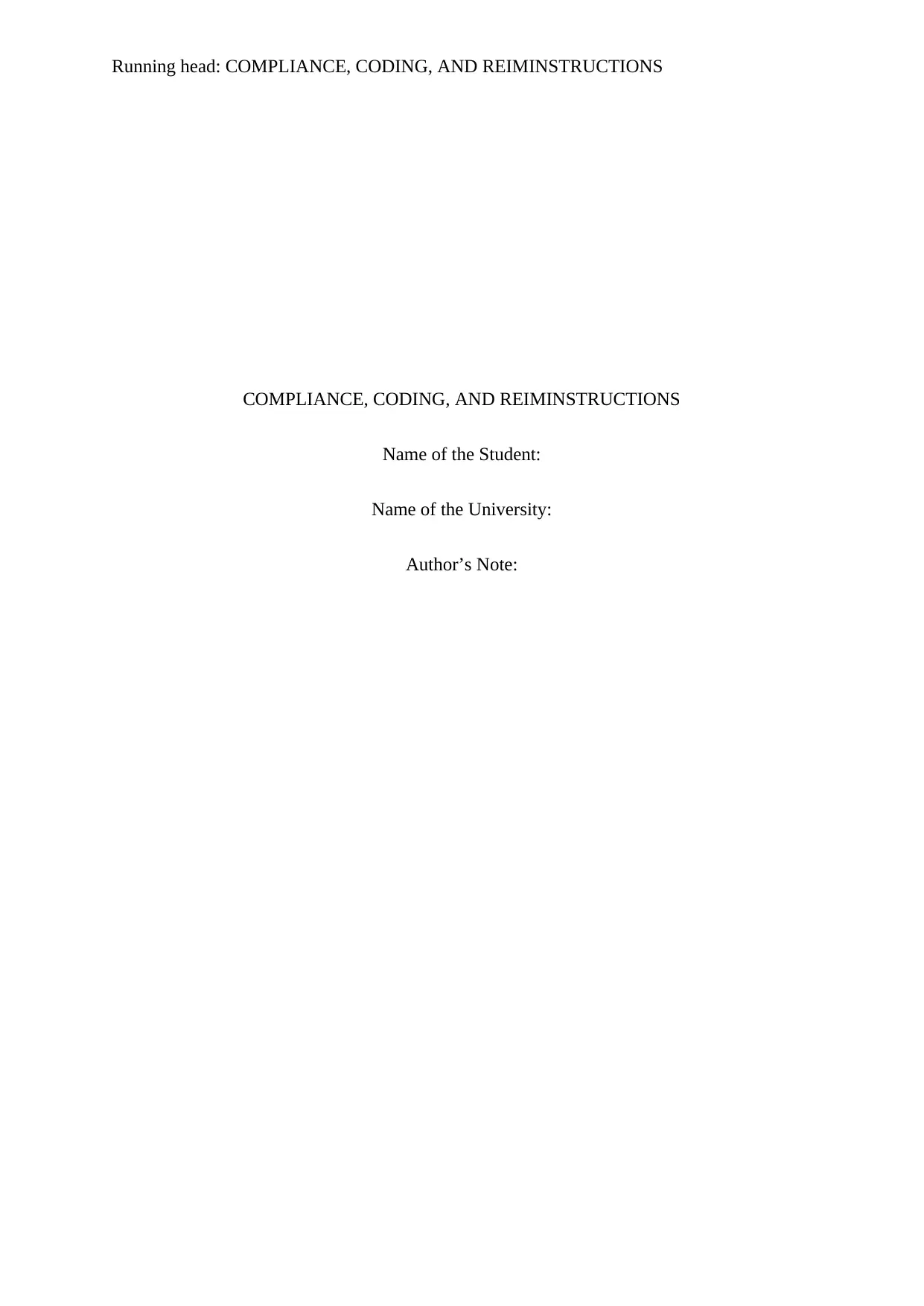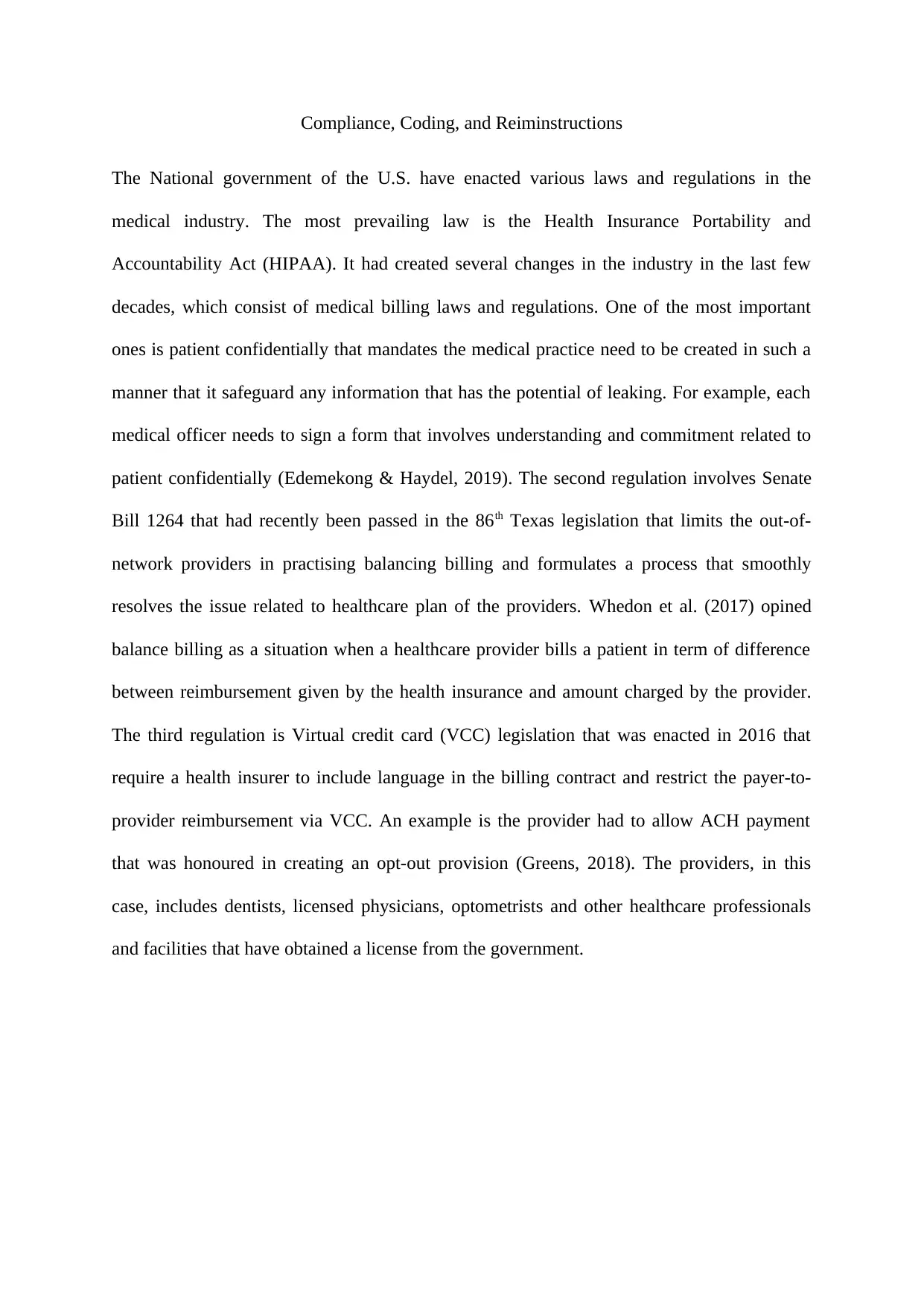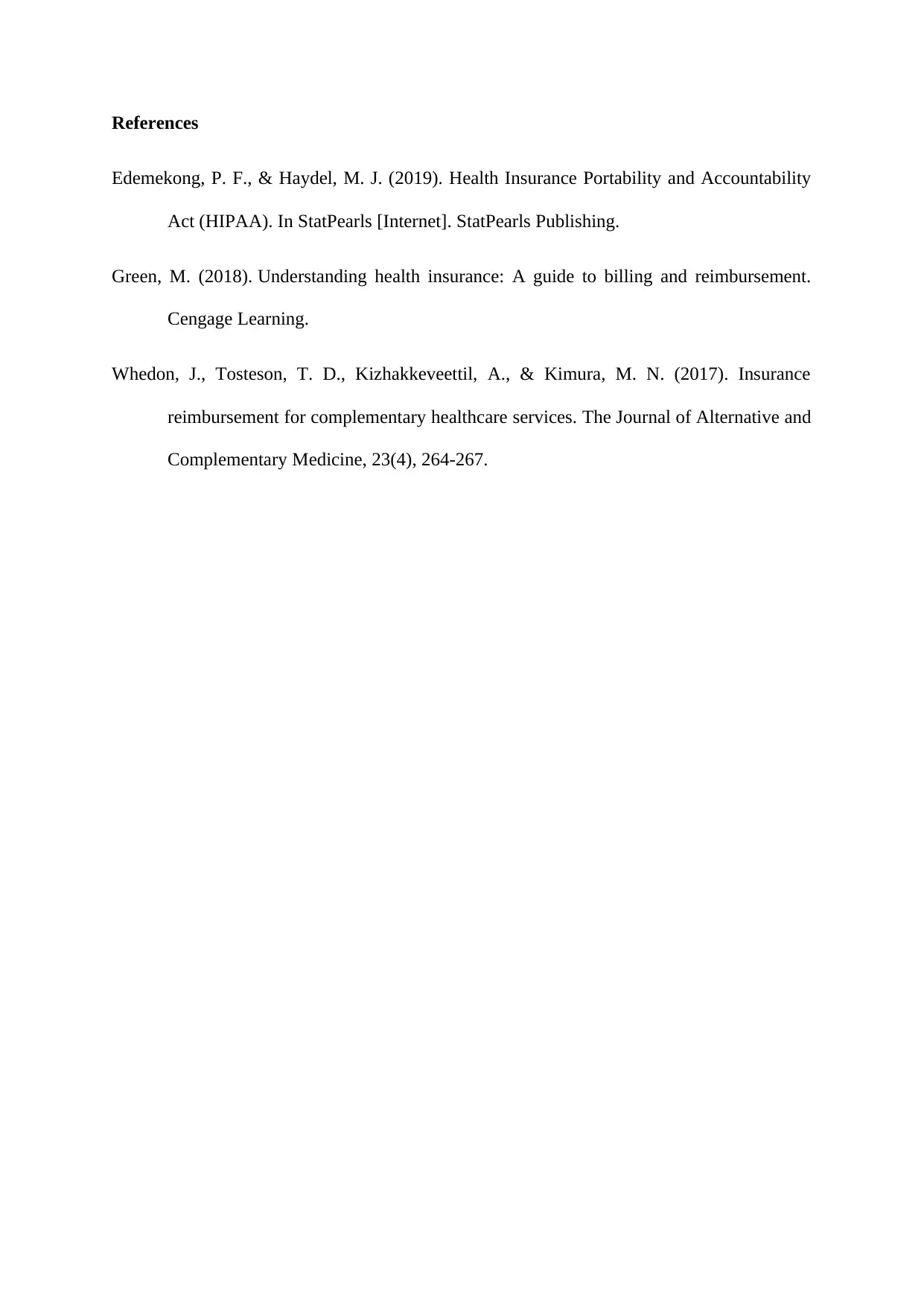Analysis of Compliance, Coding, and Reimbursement in Healthcare
VerifiedAdded on 2022/08/21
|3
|424
|21
Report
AI Summary
This report examines healthcare compliance, coding, and reimbursement, focusing on key regulations and their impact on the healthcare industry. The report begins by highlighting the Health Insurance Portability and Accountability Act (HIPAA) and its significance in maintaining patient confidentiality. It then explores Senate Bill 1264, which addresses out-of-network billing practices and provides a framework for resolving healthcare plan issues. Additionally, the report discusses Virtual Credit Card (VCC) legislation and its implications for provider reimbursement. The report references relevant literature to support its analysis and provide context to the current healthcare landscape. Overall, the report provides a comprehensive overview of the legal and regulatory environment influencing healthcare practices and financial transactions.
1 out of 3










![[object Object]](/_next/static/media/star-bottom.7253800d.svg)